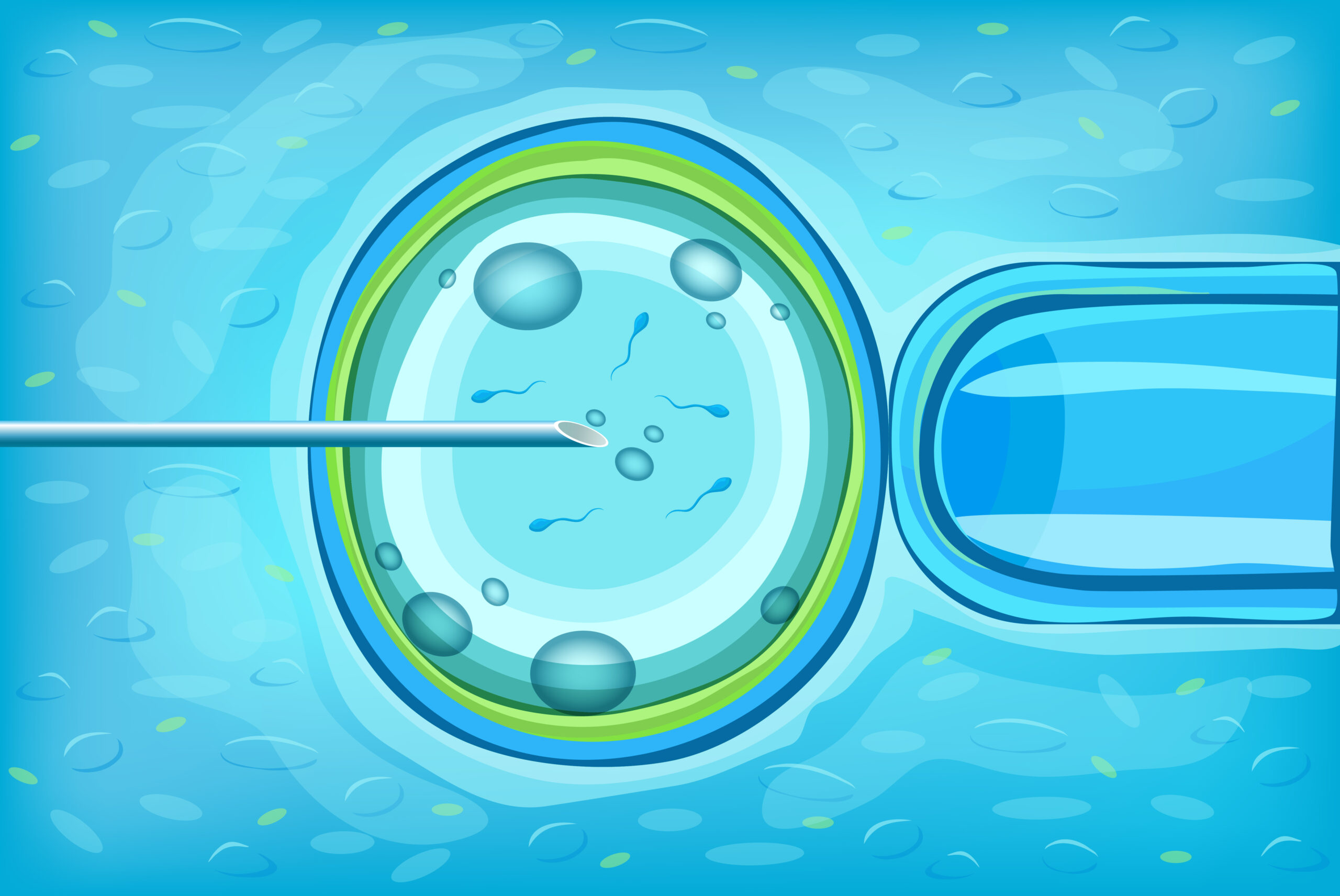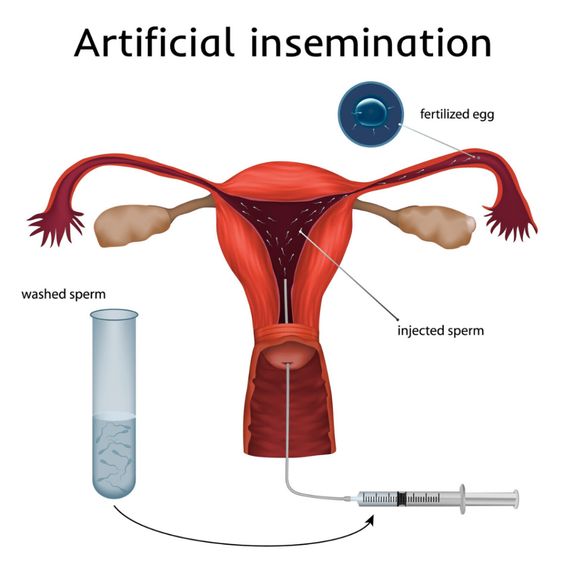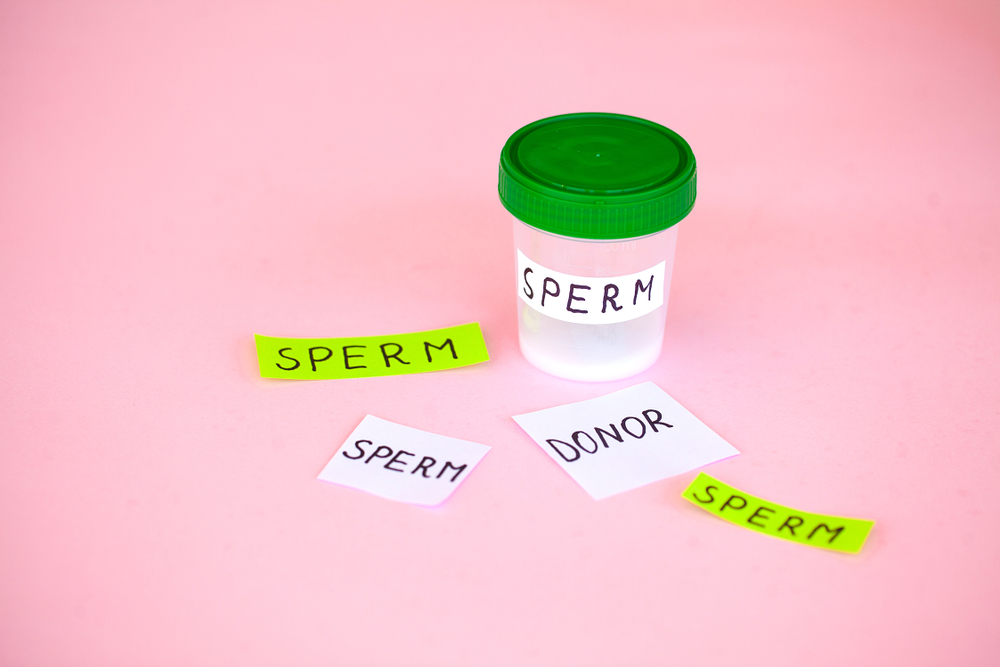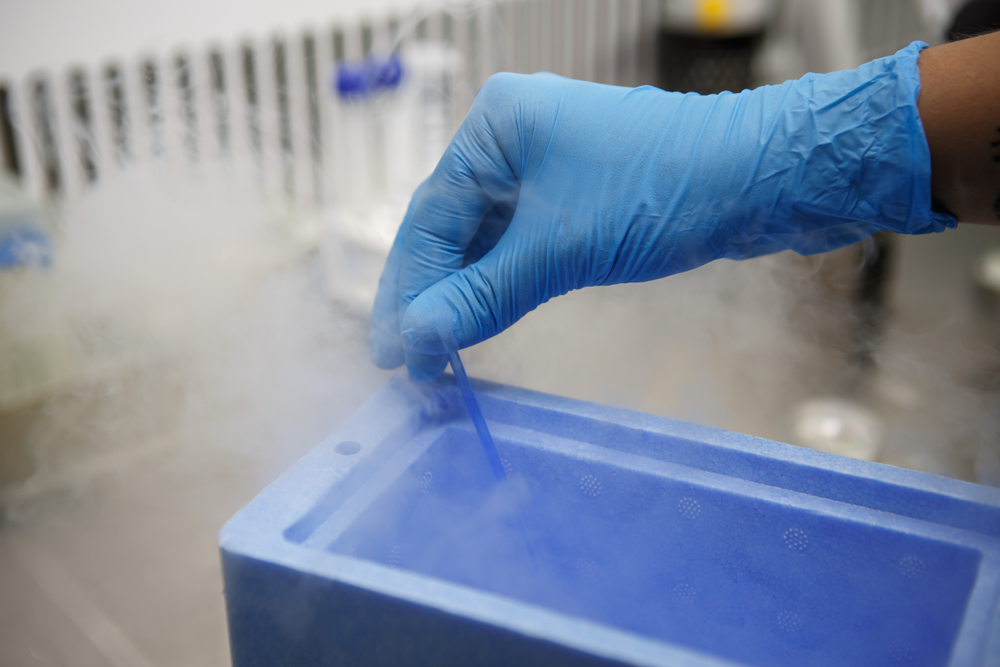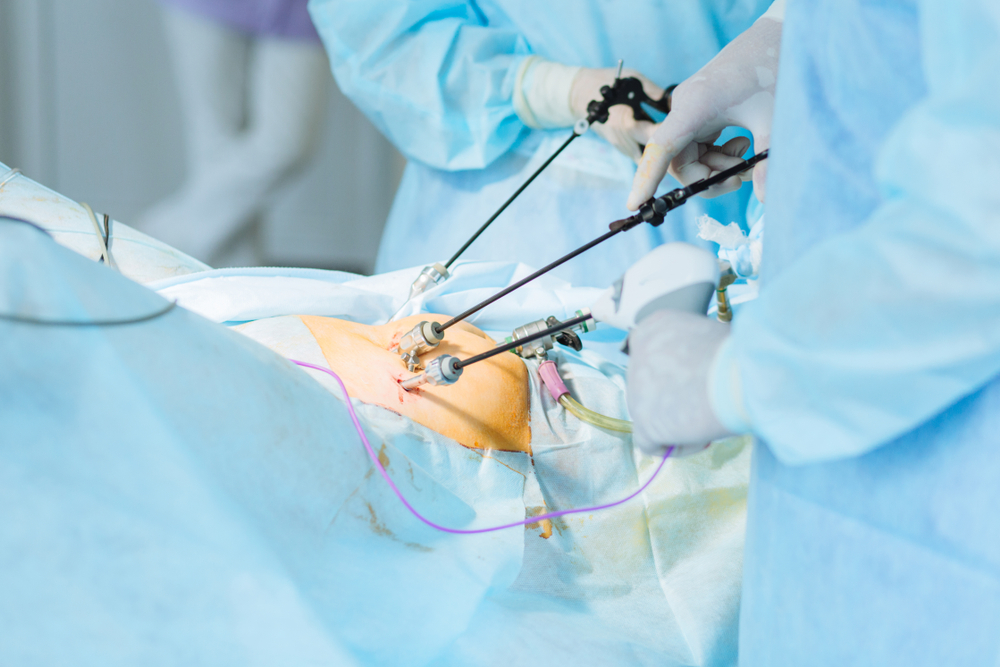






World-Class Technology
We are equipped with all the modern techniques and technologies for infertility treatments. Our top-class IVF lab has recently been upgraded as per the latest international recommendations.

Experienced Doctors & Staff
Dr. Lavleen Sodhi has been running the IVF centre since 2007 & it was the first in the region. With the best team of doctors & staff, we have successfully achieved results at par with the best institutes worldwide.

Patient-Friendly Environment
Dr. Sodhi's Healthcare Multispeciality Hospital and IVF Centre provides the perfect ambience and comfortable environment to all patients. Also, there is complete transparency in the treatment.
Empanelment
Our centre is empaneled with some of the best companies in the country.
- Icici Lombard
- Future Genera
- Med Save
- PARAMOUNT HEALTH CARE
- MEDI ASSIST INDIA
- UNIVERSAL SOMPO
- RELIANCE GENERAL INSURANCE
- BAJAJ ALLIANZ
- STAR HEALTH CARE
- MED HEALTH CLINIC
- MAX BUPA
- ADITYA BIRLA
- AKSHA TPA
- GHPL
- VIDAL HEALTH CARE
- TATA AIA
- FHPL
- KOTAK MAHINDRA
- VIDAL HEALTH CARE
- HDFC ERGO SAFEWAY
- BHARTI AXA
- VIPUL MED CORP
- PARK MEDICLAIM
- TTK
- GHPLTPA
- DHS
- MD INDIA
Why Choose Us
When it comes to your fertility care, you want the best. Dr. Sodhi's Healthcare Multispeciality Hospital and IVF Centre offers the best investigative procedures for infertility in men and women. We are equipped with world-class technology and state-of-the-art infrastructure which caters to infertility treatments like IUI, IVF, ICSI, Sperm donor, Egg Donor, Embryo Freezing, Blastocyst Culture and Transfer, Laparoscopy, Hysteroscopy, and more. In addition to your primary fertility physician, we have put together an integrated support team of experienced nurses, psychologists, and staff who work together to address your physical, emotional, and financial concerns. Choose Dr. Sodhi's Healthcare Multispeciality Hospital and IVF Centre to help build your family!

Dr. Sodhi’s Health Care Multispecialty Hospital & IVF Centre
Dr. Sodhi’s Health Care Multispecialty Hospital & IVF Centre has been running since 2007, employing the latest ‘State of the Art’ technologies for the treatment of infertile couples. The ultra-modern hospital is located in Mohali, a highly progressive township, adjoining Chandigarh.
Dr. LAVLEEN KAUR SODHI
DIRECTOR & Sr. CONSULTANT.
Obstetrician & Gynaecologist, Infertility specialist

Dr. Lavleen Kaur Sodhi is the Director, Sr. Consultant Obstetrician & Gynaecologist and Infertility specialist at Dr Sodhi’s Health Care Multispeciality Hospital & IVF Centre. She is also a visiting consultant at Fortis Hospital, Mohali & Cloud Nine Hospital, Chandigarh. Dr Lavleen Kaur has an illustrious academic record to back her present competencies. She completed her MD in 1995 from the prestigious P.G.I Chandigarh & her D.N.B.E from New Delhi, both in Obstetrics & Gynecology. During her M.B.B.S she also bagged the ‘Silver Medal’ in General Surgery in the final professional examination.
Happy Couples
Our Videos
Blog
 The Ultimate Guide to What Should be the Baby’s First Foods January 18, 2023
The Ultimate Guide to What Should be the Baby’s First Foods January 18, 2023If you are a new mom whose baby is all set to try out food for the first time, then this place is just for you.
When your baby turns six months, you introduce them to solid food. However, as it’s their developmental stage, you must look for food items packed with essential nutrients and vitamins.
The more nutritious food choice you make for your baby, the better for their growth. That’s why mom’s become quite cautious at this stage.
So, what should be your baby’s first food? If you are thinking so, then read through:
Signs that Your Baby is Ready For their First Food
Before adding any solid food to your baby’s diet, you must check whether your baby is ready to consume them or not. Here are the signs that indicate the same:
- Your baby is six months or older.
-
They look curious and interested in the things you eat.
-
The baby has good control over their head, trunk, and sitting posture
-
They try to chew on toys or their hands
-
They lose their tongue thrust reflex, and the food spills out from their mouth.
-
They still feel hungry after breastfeeding.
If these signs match your baby’s behaviour, most probably, it’s time to feed them solid food. However, we recommend consulting your paediatrician before including anything new in your baby’s diet.
Best First Foods for Baby
Just as nutrition affects fertility in females, it also plays a crucial role in a baby’s development. So, you must ensure that you introduce the best first foods to your baby.
In principle, natural foods are best for your baby. Avoid packaged food which contains artificial flavours & colors and preservatives
Once your paediatrician confirms that your baby is ready to have their first food, you can try out the below items:
Note: If your paediatrician gives you a diet plan for your baby with all do’s and don’ts. Simply follow the same.
4-6 Months

This is the first phase when your baby will be trying solid food along with breast milk. As it’s their first time, we recommend going slow and keeping it simple.
However, you must choose food items that are rich in protein, iron, zinc, Omega 3 fatty acids, calcium, and vitamins. You could also give them food with some carbohydrates for energy.
Here are the food items that you can introduce:
- Bananas
-
Oatmeal
-
Apples
-
Avocados
-
Pears
-
Green beans
-
Potatoes
-
Carrots
In the case of fruits like bananas and apples, you can grind or mash them before feeding your baby.
For rice and oatmeal, you can cook them until they are semi-solid. You can also add in some breast milk for extra nutrition.
As for vegetables, boil and mash them well before feeding them to your baby. You can add a pinch of salt to potatoes for added taste.
6-8 Months

With increasing age, your baby’s stomach grows too. So, you can gradually increase the food amount by the time they reach the 6-8 month age.
Paediatricians may also allow you to add some complex proteins like meat, tofu, and egg yolk. You can also give them more coarse food items than pureed or mashed ones. It’ll help them to learn to chew and get accustomed to regular food.
Some food items for 6-8-month-old babies are:
- Plums
-
Pumpkin
-
Chicken
-
Turkey
-
Apricots
-
Mango
-
Yoghurt
-
Tofu/paneer
-
Fish
While feeding them meat, make sure it’s soft, pureed, and gummable. The meat should be fully cooked. You can add water or cook the meat in their own juices.
It’s recommended not to serve rare or medium-rare meat to your baby. Also, avoid options like bacon, hot dogs, or lunch meats.
8-10 Months

By the time your baby turns ten months old, they develop four teeth in the front. It’s also the phase where they get eager to eat regular solid food.
Although your baby might develop teeth, they still aren’t appropriate for proper chewing. So, cut the food into small bit sizes (if not mashed) and keep them soft.
At times, your baby may spit food or deny eating. It’s recommended not to force-feed them in such cases.
You can add the below items to your baby’s diet:
- Beets
-
Asparagus
-
Peppers
-
Guava
-
Kiwi
-
Papaya
-
Cantaloupe
-
Eggplant
-
Figs
-
Meat
-
Cheese
-
Quinoa
You can feed them half a cup of solid food 3-4 times a day. However, avoid giving them whole fruit or large pieces of meat.
12 Months
Once your baby turns 12 months old, it can chew properly. Now you can feed them the same food as you and your family eat. You can also introduce new food items with different flavours and textures.
You should also look for any food item that can cause an allergic reaction in your baby. Your baby could develop allergic reactions to a food item if any close family member has the same.
Here’s what you can add to your 12-month-olds diet:
- Corn
-
Tomatoes
-
Spinach
-
Citrus food
-
Cow Milk
What to Avoid When Introducing Solid Foods to Baby
When your baby is young (about six months), they don’t need sugar or high salt content in its food. You can sprinkle very little salt for taste, but too much of it can have a bad effect on your baby’s kidney.
Another food item that’s a big no-no for babies younger than 12 months is honey. Honey can cause Infant botulism, an Illness that occurs due to Clostridium botulinum (bacteria). This bacteria can contaminate several foods, including honey. So, don’t give honey to your little ones.
You should also avoid whole nuts, popcorn, and hard food items, as they could cause choking.
3 Day Wait Rule for Introducing Solid Food
The 3-day wait rule is where you wait for 3 to 5 days before introducing a new food item to your baby. Suppose you fed your baby some porridge, and next, you want them to taste banana.
After making them eat porridge, you must wait for 3 to 5 days to see how they react to the food. If everything is fine, you can feed them the banana. The 3-day wait rule should be followed for 12 months.
So, this is the complete guide on what should be your baby’s first food.
 Easy and Safe Postpartum Exercises You’ll Love January 14, 2023
Easy and Safe Postpartum Exercises You’ll Love January 14, 2023Congratulations on your little one! Being a new mom must be a thrilling experience. It must have increased your self-esteem and filled you with unconditional love for your child.
However, as it’s the postpartum or after-birth phase, you must be facing the baby blues too. You must be looking for ways to strengthen your body and shed those extra kilos.
And what’s the best way to do so? Postpartum exercises. Here are some easy and safe postpartum exercises that all new mothers can try:
Note: Before starting any postpartum exercise routine, it’s recommended to consult with a professional gynecologist and discuss your plan. We also suggest waiting at least 12 weeks (after giving birth) before you start strenuous workouts, running or weight lifting.
Walking
Brisk walking can speed up your post-pregnancy healing process. It can burn calories and help manage other conditions like PCOS/PCOD that may linger even after pregnancy. So, it’s worth including in your postpartum exercise routine.
Many healthcare professionals recommend walking for 150 minutes every week. You can divide these 150 minutes into days, sessions or as you are comfortable. If you can walk easily, you can indulge in a 30-minute walk for five days a week.
If not, you can break this 30-minute walk into 10-15 minute daily sessions. This means if you are walking for 15 minutes in the morning, you can complete the other half in the evening/night.
We recommend not going overboard with walks during the early weeks of postpartum. If you see any sign of heavy or bright red bleeding, it might indicate that you’re overdoing it. Stick to the 150-minute walking plan or anything suggested by your gynecologist.
Belly Breathing
Belly or diaphragmatic breathing is best for reducing stress and keeping your mind relaxed. It can increase blood oxygenation and reduce any muscle tension in your body. By focusing on your breathing, you can also slow down your breathing rate.
To perform this exercise, you need to sit or lie down in a comfortable place. After that, follow the below steps:
-
Close your eyes and keep your one hand on your chest. Now, keep your other hand on your abdomen.
-
Take a deep breath and inhale through your nose. Do this for about 4-5 seconds. While you inhale, make sure your belly is expanding.
-
Hold your breath for 2 seconds and then exhale slowly for about 6 seconds.
While performing this exercise, your hand on the abdomen should move with the breathing. You can repeat this exercise for 5 to 10 minutes or 3 to 4 times a day.
Neck Stretches
As a new mom, you must have a lot of responsibilities. Whether it’s feeding your baby or nursing them, you must be handling several things at once. While doing so, your neck must be getting affected too.
The best way to relieve your neck from such stress is by doing neck stretches. For that, simply follow the below steps:
-
Stretch your neck to the right side (as far as it’s comfortable) and hold the position for 30-60 seconds.
-
After 60 seconds, go back to the prior position and repeat this step for the left side.
Do this neck stretch five times a day (on each side).
Cat-Cow Stretch
Cat-cow stretching is great yoga to improve your posture and balance during the postpartum period. It also relieves stress and calms the mind for good emotional balance.
To perform the cat-cow stretch, do the following:
-
Kneel down on the floor. Go to a position where both your hands are shoulder-width apart, and the back is flat. Keep your knees below your hips.
-
Now inhale and drop your lower belly down while bringing your head up. This will be your cow position.
-
After that, exhale deeply and pull your belly button in (towards the spine). Meanwhile, keep your head and pelvis down. This will be your cat position.
Repeat this exercise 5 times. Don’t overstretch your belly while doing the cow position. You can skip the cow position if you are suffering from a condition called diastasis recti after childbirth.
Pelvic Tilt
After delivering a baby, you may develop a bulge in the middle of your belly, called a mommy pooch. A good way to reduce this mommy pooch is by doing the pelvic tilt exercise.
Besides the mommy pooch, pelvic tilt can also alleviate back pain, strengthen abdominal muscles and reduce any muscle stiffness. Here’s how you can do it:
-
Lie down on your back and keep your knees bent. Make sure that your feet is flat on the floor. Also, your back should maintain a natural curve.
-
Exhale while engaging your abdominal muscles and bending the pelvis upwards. Your tailbone should lean upwards too.
-
Maintain this position for a few breaths. After that, inhale and come back to the original position.
Repeat this exercise 5 to 10 times. Keep your focus on posture rather than speed.
Happy Baby Pose
The happy baby pose can relieve any tension in your pelvis. It can keep your back muscles relaxed and improve hips mobility.
To perform this pose, you need to lie down flat on your back and bend your knees towards the chest. Now, bring your arms from the inside of the knees and hold the outer edge of both your feet.
If you are a beginner, hold one foot at a time. Now, gently rock side-to-side. You can do this for about 1 to 2 minutes.
Wall Push-ups
During your postpartum period, your abdomen stays weak and needs time to heal. That’s why it’s best to avoid push-ups. However, you can do its alternative, that is, wall push-ups.
-
To do this exercise, you need to stand at an arm-length distance from your wall. Make sure your feet are under your hips.
-
Bend your elbows and lower the upper body towards the wall. Make sure to inhale and keep your upper arm parallel to the wall.
-
Now, push yourself back slowly and return to the first position.
You can decide on the sets and repetitions of the wall push-ups as per your ability. It’s best to keep things slow at first and pace up as you get accustomed to it.
Try these easy and safe postpartum exercises to keep your physical, social, and psychological health intact after childbirth.
-
 Importance of Mental Health While Adopting Fertility Treatments January 11, 2023
Importance of Mental Health While Adopting Fertility Treatments January 11, 2023If you are undergoing fertility treatment, you must be having a tough time. We know how the entire process can be emotionally draining. However, remember you’re not alone!
Every year, healthcare professionals perform more than 2.5 million IVF cycles. Infact, when it comes to developing countries, one in four couples suffer from infertility. So, it’s far more common.
Another thing that’s common with infertility treatment is depression, anxiety, and psychological distress. The diagnosis may make you lose control over your life and feel guilty for your prior actions.
In such cases, it’s recommended to take instant help from mental health professionals.
Infertility and Mental Health
In some countries, it’s strongly believed that women are naturally fertile and they must fulfil their duty of giving birth. When society keeps emphasizing on this factor, it starts taking a toll on a woman’s mind.
Eventually, when a woman can’t fulfil the duty of childbearing, it makes her feel useless and incompetent. That’s when she suffers from depression, anxiety, and high levels of psychological distress.
In female infertility, mental health issues could be related to social stigma. However, men could take it as far as their masculinity. When a man is told they aren’t fertile, they feel they’ve lost their virility or manhood.
They hardly discuss their infertility issues with close ones as they fear mocking and insults. Eventually, this makes them feel frustrated and overwhelmed therefore impacting their mental health.
The psychological effects of infertility aren’t always related to society or masculinity. Sometimes, a couple really wants to get pregnant and start their family. But when they fail to do so, it deeply affects them.
So, there could be several possible reasons behind infertility and mental health issues in couples.
Now, the question is, what to do if you suffer from such mental health problems during your infertility treatment? The answer is simple, seek help.
How Can Psychological Counselling Help Couples During Infertility Treatment?
Psychological counselling is a great way for both men and women to handle the escalating emotions, anxiety, and depressive symptoms during infertility treatment.
It’s offered by experienced psychologists who know how to handle people facing such situations. They work by identifying the issue for each individual and give therapy sessions accordingly.After performing the individual counselling sessions for both you and your partner, psychologists start with the couple’s therapy. Throughout this session, they assist both you and your partner in handling your emotional changes. They identify the trigger points and come up with the best solution to resolve your problem.
In some cases, infertility can affect your relationship as a couple. For this also, you can take help from psychologists. They can implement effective strategies to strengthen your relationship and help you to return to your older self.
Your psychologist may keep giving counselling sessions unless both you and your partner get a stable frame of mind.
Benefits of Good Mental Health During Infertility Treatment
Good mental health can stimulate an optimistic mind, which is one of the most crucial aspects of successful infertility treatment. When a person develops a positive mindset, they believe in positive outcomes, regardless of how low the chances are.
A healthy mind can also build a good mind-body connection and promote overall well-being. It can keep stress at bay, which is another possible reason for putting a damper on fertility.
If you want your infertility treatment to be successful, you must stay away from depression, anxiety, and stress. Also, you must mentally prepare yourself for the process and hope for the best results.
5 Things You and Your Partner Can Do to Manage Stress During Infertility Treatment
There are certain things that you and your partner can do to keep stress and anxiety at bay. This’ll help you relax and focus on the positive side of your infertility treatment.
Practise Cognitive Restructuring
Cognitive restructuring is a method of changing the way you think. When you keep thinking negative, your mind accepts them and encourages you to stop hoping and give up.
But this isn’t what you should do. Rather, you must re-shape your mind with positive thoughts and keep your hopes high.
Try Mindfulness
Mindfulness is a great way to relieve stress and improve your self-esteem. To practice mindfulness, you must focus on the present moment.
You should dedicate yourself fully to your thoughts, sensations, feelings, and surroundings. The more you practice it, the better you’ll feel.
Talk With Your Fertility Specialist
If you’re stressing over things that can go wrong during your treatment, then talk to your fertility specialist. They’ll explain to you the entire process again, along with its success rates.
Remember that treatments like IVF can increase your chance of pregnancy despite fertility problems. In fact, more than 8 million babies have been born from IVF since its start in 1978. You just need to trust your doctor and stay away from the myths about the treatment.
Stay Busy
Infertility can be depressing, but it shouldn’t stop you from doing your daily work. An empty mind stimulates negative thoughts, so try to keep yourself as busy as you can.
If you are in the professional world, don’t let your diagnosis hamper your career. Similarly, if you’re a housewife, indulge in a new hobby and do things that interest you.
Spend Time with Family
Nothing is as effective as spending time with your family when you’re stressed. So, whenever you get time, sit with your loved ones for chit-chat.
Also, don’t lock yourself up. Go out and have a fun time with your friends and family members. Live your life as you did before your infertility diagnosis.
Final Note
We know infertility can be hard to accept. But it isn’t the end of the world. There are treatments available in the medical industry to combat this issue. This means you have a fair chance of having a baby.
Trust your fertility specialist and seek help from your psychologist if you face mental health issues.
You can do this!
 Egg Freezing in India – Benefits, Safety, Costs & More January 6, 2023
Egg Freezing in India – Benefits, Safety, Costs & More January 6, 2023Nowadays, women are choosing to have children later in life. If you want kids in your late 30s, 40s, or 50s, egg freezing in India can be a good option for you. This allows you to control your biological clock to start a family anytime.
What is egg freezing?
Egg freezing, also known as mature oocyte cryopreservation, is a procedure to save a women’s egg for later use. Females who are undergoing any surgery on the ovaries (e.g, ovarian cyst removal), have ovarian cancer, or want to conceive late can opt for this procedure. In it, the unfertilised eggs of a woman are stored for years until she is ready to have children. This also secures the quality and health of eggs. As you age, egg quality starts declining.
What is the Process Of Egg Freezing In India
When you are planning to get your eggs frozen, you need to visit the best gynaecologist and IVF specialist in your area. For example, if you live in Mohali, then look for the best IVF centre in Mohali. Your doctor will guide you and help you freeze your eggs.
Before undergoing treatments, a gynaecologist does a transvaginal ultrasound and blood tests. This will help the physician to know how many eggs are available in your ovaries. After testing, the egg collection process starts, which is very much similar to IVF up to certain steps. The goal is to retrieve the maximum number of eggs as safely as possible within a single cycle.
Here are the steps of egg freezing procedure:
Ovarian stimulation: Upon the start of your menstrual cycle, the doctor will give you daily injectable medications of natural hormones. This will help to stimulate follicles in your ovaries to grow and mature. During this period, the doctor will monitor the woman regularly with ultrasound and bloodwork to ensure the appropriate growth of follicles.
Trigger injection: When follicles grow, the doctor instructs the patient to take a trigger injection. This prepares the body for egg retrieval.
Egg retrieval: A vaginal ultrasound probe is safely inserted into the ovaries to retrieve the eggs. During this process, intravenous sedation will be given to the woman so she won’t experience any pain or discomfort.
Cryopreservation: The retrieved eggs are safely frozen and stored for future use.
Altogether, the process takes a couple of weeks, from hormone treatment to egg retrieval and freezing.
Benefits Of Egg Freezing
Here are the benefits of egg freezing in India:
- Egg freezing helps protect the quality of eggs despite the age of women.
- It benefits women’s biology and helps them live a happy life with no stress of declining egg quantity.
- It can help reduce women’s fertility anxiety.
- Egg freezing can protect women’s eggs from disease or preserve them before invasive medical treatments.
- It provides you with a reliable time to find the right partner to have children.
- This technology benefits women who wish to pursue other priorities before becoming a mother.
What Are The Risks Of Egg Freezing?
As already stated, egg freezing in India involves stimulating the ovaries through injections to mature more eggs. This sometimes leads to ovarian hyperstimulation syndrome (HSS), a condition where the ovaries become painful and swollen. Further, this may cause other symptoms like vomiting and bloating. Other unwanted side effects of the egg-freezing procedure may include weight gain, mood swings, and headaches.
How Much Does Egg Freezing Cost In India?
In India, egg freezing costs less than in other countries. The fertility world charges egg-freezing costs ranging from Rs1.20 lakhs to 1.70 lakhs. This cost includes the charges of IVF protocol, which are the medicines and injections given for ovarian stimulation, along with the charges for the procedure of egg retrieval and subsequent freezing.
How To Prepare Yourself For Egg Freezing Procedure?
Have you decided to go for egg freezing? If yes, then making a few lifestyle changes can help you freeze quality eggs. Here are a few things that you can consider before going for the procedure.
- Eat an omega-3-rich diet. You can add a good quantity of fish, nuts, and seeds to your diet as they are rich in omega-3s. Also, eat a lot of fruits and vegetables to fulfil your body’s need for vitamins and minerals.
- Reduce your caffeine consumption. It is because high levels of caffeine consumption are associated with decreased fertility and may affect your egg quality.
- Get enough good quality sleep as it plays a vital role in fertility.
- Start taking good quality prenatal vitamins and nutrition for fertility.
- Moderate exercise can benefit you in many ways. It will not only balance blood sugar but will also manage body fat levels.
- Keep cortisol levels low with meditation, yoga, and other stress-relieving therapies.
How Many Eggs Should I Freeze?
This number can vary from person to person and depends on factors like age, but generally, it is recommended to freeze between 12-20 eggs. It is best to talk to your doctor regarding your goals for your future.
Yes, you can freeze your eggs at 35 if you want to become a mother late. Make sure you decide as early as possible because your egg quality and quantity decrease with every menstruation cycle.
What is the best age to freeze your eggs?
If you are sure that you don’t want to become a mother till 40 or 50, then it is better to freeze your eggs in your early 30s. Also, you can freeze eggs in your 20s. It is better to consult the best lady doctor for egg freezing.
Is it worth freezing eggs at 39?
Yes, freezing eggs at 39 if you still have enough eggs in the ovaries. This can be checked with blood tests and ultrasound. If, however, your ovaries are already depleted of eggs, it may not be worthwhile. There is no perfect age for egg freezing, but the earlier, the better for freezing quality eggs.
Do you gain weight when you freeze eggs?
Most women do not feel any change in their weight during egg freezing.
 5 Things to Know About Cord Blood Banking in India January 3, 2023
5 Things to Know About Cord Blood Banking in India January 3, 2023A few years ago, umbilical cord banking was a foreign concept for the Indian population. But today, due to the increased use of stem cells in many treatments, people opt for cord blood banking in India. Your baby’s umbilical cord blood is collected and stored for future medical use.
A baby’s cord blood contains valuable stem cells that help treat various diseases like blood cancer, genetic disorder, and more. As research on stem cells advances, many more health conditions will be successfully treated. Here are a few things that you need to know about cord blood and stem cell banking in India.
Cord Blood is Collected After the Delivery of the Baby
Cord blood is collected after the cord is clamped, and the doctor delivers the baby to the parents. The cord blood collection causes no pain or harm to the baby or mother. Even today, many hospitals started collecting cord blood after a delayed cord clamping. This allows much of the umbilical cord’s blood to return to the baby when the cord is clamped.
Preserved Cord Blood is Beneficial for Siblings
The stem cells from the cord blood are genetically unique to the baby’s family members – siblings, parents, and relatives. The chances are high that a sibling’s genetic matches with the preserved stem cell. This means that these cells could effectively treat serious diseases in siblings. Further, the sibling can also benefit from the stem cell when it comes to the body’s immune system. So, preserving cord blood will give peace of mind to a family as they will have a treatment option available if needed in the future.
Decide Before Labor whether to Save the Cord Blood or Not
You need to decide before labor whether you want to store the cord blood of your baby or not. For cord blood banking in India, you need to go through a registration process that is not a part of the delivery ward. For parents planning to store or donate cord blood, it is recommended that they complete the registration process with the cord bank before the third trimester.
Stem Cell has Promising Potential
Umbilical cord blood has promising potential for treating a variety of diseases. It is a rich source of stem cells that have been used in more than one million transplants worldwide for disorders like leukaemia, metabolic disorders, and more. These stem cells are also useful to offset the effects of cancer treatment on the immune system.
Cord Blood is Useful for Clinical Trials and Research
New diseases and advanced treatments for them are emerging with each passing day. For the development of novel therapies, stem cells play a vital role in research and clinical trials of treatments. For example, stem cells help in the research of advanced treatments for blood disorders, traumatic brain injury, muscle repair, etc. Additionally, they are useful in the study of how diseases occur and why cells develop into cancer cells.
Options for Storing Cord Blood: Private and Public Banks

In India, you will have two options for storing cord blood which are discussed below:
Public cord blood banking: Public cord blood banks work on the donation concept. It means you donate your baby’s cord blood to these banks, and they store it for free. But, your cord blood will be used for anyone who is in need of it. This means it will be available to the public also.
Private cord blood banking: Private cord blood banks are personal family cord blood banks. Parents store their baby’s cord blood for future use. No other person will have the right to use your cord blood. But private cord blood banking s not free. Here you will need to pay initial fees and charges per year.
Here is the list of private cord blood banking in India:
-
- Cryoviva India
-
- Cordlife India
-
- LifeCell
-
- Biocell
-
- NovaCord
-
- Stem Plus
-
- StemCyte India
-
- Reliance and more.
If cord blood banking is something you are interested in doing, please discuss your options with your doctor to find one.
Cord Blood Banking Pros and Cons
Here are the pros and cons of cord blood banking:
Pros
-
- Collecting cord blood is risk-free and causes no harm to both you and your baby.
-
- Stem cells from cord blood can support the immune system of cancer patients.
-
- Donating cord blood in public banks is free.
-
- As already mentioned, stem cells are useful in treating numerous severe illnesses, such as genetic disorders, neurological diseases, and more.
Cons
-
- You need to spend a bit of time during pregnancy preparing papers to donate or store cord blood.
-
- Storing your cord blood in a private bank can prove costly for you.
-
- Sometimes a patient needs more stem cells than are available in the cord blood of one person.
Cord blood banking offers both advantages and disadvantages. In essence, the main benefit is that the stem cells donated may be used in life-saving treatment.
FAQs
How much does cord blood banking cost in India?Different banks charge different fees for storing cord blood for years. In India, the charges for cord blood banking may vary between Rs 50,000 and Rs 1,00,000. You don’t need to pay at once, but you can pay every year or month, depending on the plan you choose.
Is cord blood banking worth it in India?Storing your baby’s cord blood is a personal decision. However, it can be useful for you and your family in many ways in the future. Remember that umbilical cord blood that isn’t stored or donated gets thrown away. So, if you are able to pay the fee, then it is a good option to store the umbilical cord blood in India.
How many years is cord blood good for?The cord blood banking industry is less than 30 years old, so it is difficult to say how many years cord blood is good. But it is good for atleast 25 years or more.
Does insurance cover cord blood banking?No, in India, insurance doesn’t cover cord blood banking.
-
 How to Find the Best Gynaecologist in Chandigarh? December 28, 2022
How to Find the Best Gynaecologist in Chandigarh? December 28, 2022Nothing matches the excitement and happiness of getting a positive pregnancy test report. Motherhood is a blessing for every woman. When you learn about the good news, the first thing that crosses your mind is finding the best gynaecologist in Chandigarh.
A doctor who is experienced and can become your true companion in this wonderful journey. Here are some tried and tested tips for finding the best gynaecologist in Mohali and Chandigarh.
Check your Insurance Plans
Do you have health insurance? If so, you should identify which maternity doctor in Mohali is a part of your plan. Moreover, you should also check your policy papers to see the costs of consulting an out-of-policy doctor.
If you are a Medicaid or Medicare beneficiary, you can check with your policy agent for more details. Lastly, it is always wise to confirm with your doctor’s office if they work with your insurance provider. It is the best way to get the list of doctors available in your area.

Get Reviews and Feedback
Your family, friends, and co-workers can be a great resource in this process. After all, they know your medical condition and have an idea of the city and the kind of maternity doctors in Mohali.
Apart from this, local smartphone apps and social media platforms can also help immensely in this process. You can get a fair idea about the personality, communication style, and philosophy of the doctors in the city. Remember, online reviews can be misleading at times. So, ensure you rely more on the people you trust and know well.
Distance Matters
Experienced and best gynaecologist in Mohali sees patients in clinics, hospitals, and private clinics. So, check their distances from your residence. Consider the traffic conditions, peak hours, driving time, and parking facilities in this process.
Since pregnancy is a crucial phase, you should consider searching for a doctor nearest to your place. Also, check the office-doctor distance if you need to go for check-ups during office hours.
Is Meeting the Gynaecologist Easy?
Accessibility is another crucial factor to consider in this process. You see, pregnancy leads to severe hormonal changes and other health conditions. These things can worsen over time. So, ensure you pick a doctor in Chandigarh who can see you or take your calls at any time.
Moreover, once you enter your second trimester, your visits to your gynaecologist will automatically increase. So, here is a list of questions you should consider while determining the accessibility of your doctor:
- Can this doctor take emergency calls?
- How quickly can the doctor check you in case of any emergency?
- How long do you generally wait for your routine appointments?
- Does she answer messages or prescribe medicines on the phone?
- Is your maternity doctor in Chandigarh available on weekends or holidays for you?
Check the reputation of the gynaecologist.
There is nothing wrong with checking the reputation of the gynaecologist on your radar. After all, they will be privy to some of the most sensitive and intimate facts about your health and body. Start the process from the hospital or doctor’s website.
Read reviews and testimonials written by the patients. If required, you can also personally meet, call, or message some of the past patients of the doctors. Check the overall experience of the doctors in Chandigarh, their expertise, and their response to complicated cases.
Moreover, many gynaecologists have nursing homes and clinics and visit hospitals briefly. In this case, you should check her behaviour in both locations. Please refrain from consulting a doctor without knowing his or her medical history, experience, and success rate.
Check the Hospital

Health experts recommend consulting one maternity doctor in Chandigarh and staying in touch with her until delivery. Therefore, it is crucial to see in which hospital the doctor sits and how its condition is.
The hospital should have a good infrastructure with all the relevant equipment and emergency facilities. Moreover, it should have a pediatric section and a nursery as well. You can inquire with the officials to know the number of incubators and other infant equipment available in the hospital.
Also, the hospital should be a registered unit with all the safety measures and emergency services. Remember, you must find a reliable and safe place to deliver your baby.
Look for Board Certifications
Please understand that not every gynaecologist conducts deliveries. Some treat perimenopause and menopause issues. At the same time, some specialise in handling cancers. Therefore, it is crucial to search for the best gynaecologist in Chandigarh with board certifications.
These certifications indicate that the doctor has undergone additional training and assessments to become a specialist. Some doctors also have double-board certifications. Moreover, check their tenure of practice and the reputation of their medical schools.
Going for a board-certified gynaecologist is a wise decision. They have expertise in handling last-minute pregnancy complications. It will add an extra health security blanket for you and your baby.
Psychological Consultation
A woman goes through a lot of emotional and psychological turmoil post-delivery. Moreover, her chances of suffering from postpartum depression also increase due to less sleep and excess mood swings. Therefore, it would be great to go for the best gynaecologist in Chandigarh who acknowledges the relevance of good mental health after delivery.
The doctor should be able to screen the symptoms of depression and help you overcome them effectively. The right diagnosis, prevention, and treatment are crucial for the well-being of a new mother.
Summing Up
A gynaecologist is more than just a doctor. She is a friend, confidant, and a strong support system for pregnant women. Finding the best gynecologist in Mohali among so many is indeed an overwhelming task.
Considering your probable complications, current health status, and COVID-19-related precautions can make the process more taxing. However, you can smoothen this journey with these tips. They can help you reach the right gynaecologist in Chandigarh.
Last but not least, please stay patient throughout the process. Take your time to analyse different options. Pick the gynaecologists that can help you not only during your pregnancy, but also after it.
Google Reviews
Thank you Dr. Sodhi Hospital, Staff and Management for providing the best treatment and care. 🤗
The whole staff's dedication to the patients is inspiring.
Each and every person working in Sodhi's healthcare centre is very much caring.THOSE WHO ARE LOOKING FOR A BEST GYNECOLOGIST, PLEASE VISIT SODHI 'S HEALTH CARE.
Staff was also all time available in need.
The hospital has all the facilities and requirements, hygiene is also well taken care of.
Utmost reasonable cost. An affectionate healing touch and bond-like behaviour from Dr. Harpreet, Dr. Sodhi and Dr. Arsh preet Dhiman as well. God bless this clinic to spread many more smiles on others faces.
They explained everything very well, gave the proper medications and care and ensured a Normal Delivery for my First Child
We are very thrilled with them and have recommended them to our family and friends who ask
Dr Loveleen and Dr Harpreet are extremely knowledgeable
Warm regards,
Bhawana
Lastly they even charge for first post surgery consultation which they told was included in package they had given to me but denied afterwards.
Her team, including Dr. Harpreet Kaur and Dr. Palwinder kaur, were also incredibly caring and supportive. Throughout my journey from conception to delivery, they guided me with compassion and professionalism.
The nursing staff at the hospital were equally impressive, providing cooperative and caring service and had good experience with housekeeping services especially room cleanliness.
Thank you to the entire team for making my delivery experience so smooth and stress-free. I always recommended to visit this hospital for getting good services.
Following my C-section delivery, I was unable to breastfeed my baby and needed assistance. The night nurses left my baby hungry for over 5 hours and ignored our calls for help, only to later comment that he was crying excessively because he was supposedly full. This level of negligence is unacceptable.
The hospital mandates that nurses help babies latch for breastfeeding, which is a positive initiative. However, the execution was terrible. The nurses were forceful, and one even hit my baby near the ear. When I objected, she claimed that babies don’t feel pain, ignoring the fact that my baby was crying in distress. Due to this traumatic experience, my baby never managed to latch properly and I had to resort to formula feeding.
The pediatrician only checked on the baby once, despite being expected to visit daily and provide discharge instructions. He also failed to advise us to start the mandatory vitamin D medication for the baby. Due to this negligence, my baby experienced jaundice after a few days and was admitted to another hospital for another 3 days.
More than 1.5 years later, I still feel the pain and trauma from this experience. Additionally, the staff’s habit of calling patients "Rajje" was disrespectful, especially since many patients were older and deserved respect.
I cannot recommend this hospital for delivery procedures due to the unprofessional and insensitive behavior of the nursing staff.
Dr. Lavleen kaur gave me all the best treatment and advices on each step of pregnancy. She highly skilled in her field and very kind and helpful.
Dr. Harpreet also provided us with full care and support both emotinally and morally.
They both made this journey of pregnancy a worry free process and provided me with full mental comfort.
The facility they run is great and staff is awesomely caring and supportive.
I am very pleased to deal with them and wish that like me whoever comes to them gets their wish to become patents fulfilled.
God bless them and im highly thankful to Dr. Lavleen, Dr harpreet and their team.😊
Thank you
Regards
Dr.Pratibha


